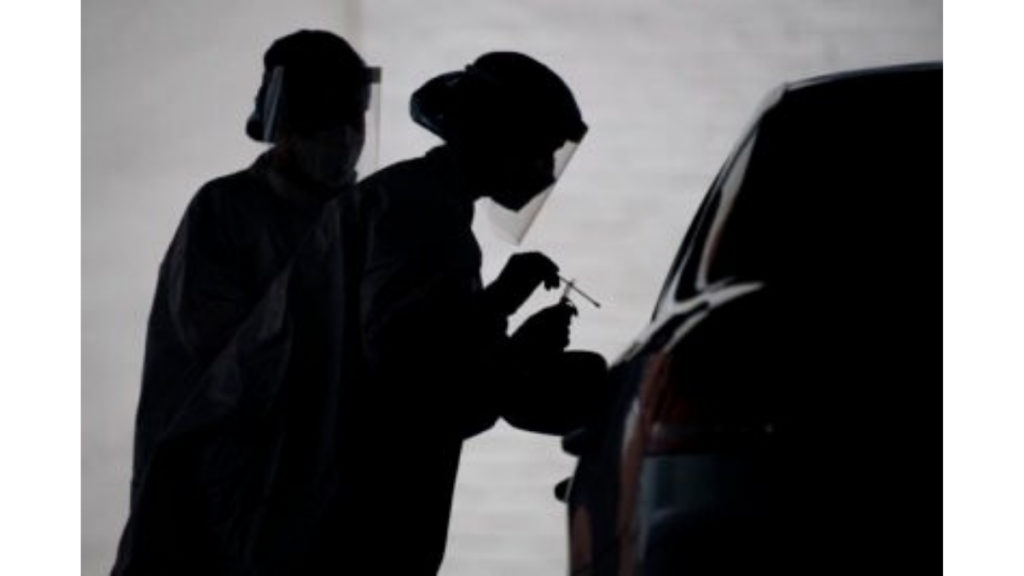Sheriff’s Office Expands Innovative Program to Assist Suburban Police on Mental Health-Related Calls

![]()
Sheriff’s Office Expands Innovative Program to Assist Suburban Police on Mental Health-Related Calls – On a cold December night, Sheriff’s Police responded to a frantic 911 call from a family whose son was behaving erratically and threatening to kill himself.
When they arrived, the distraught and angry young man was being held down by family members attempting to prevent him from grabbing a knife. Officers were able to safely separate the family, but the young man adamantly refused to go to a local hospital for a mental health exam.
In the past, such a situation could have required officers to remove him from the home by force. In this case, however, the officers had another approach available to them.
They handed the young man an electronic tablet and connected him via Zoom to a licensed mental health professional with the Sheriff’s Treatment Response Team. The man immediately calmed down and, after 15 minutes of conversation with the counselor, he voluntarily left the home to be taken to a local hospital for treatment.
Over the past several years, there has been a growing debate over the role of law enforcement in our communities. Amid calls for reforms and greater accountability, there has also been the push to send mental health professionals or social workers to respond to certain calls.
In reality, when a person is experiencing a mental health crisis like that young man in December, their friends and loved ones call 911 – not because they would prefer a police officer to a mental health professional, but because the situation has become so dire that they fear for their safety or the safety of others. Moreover, many police departments lack the funding to have mental health professionals ride along with officers as they respond to 911 calls throughout the day.
The program the officers used to help that young man is the Co-Responder Virtual Assistance Program, an expanding initiative by the Cook County Sheriff’s Office. The initiative, launched late last year, provides Sheriff’s Police with electronic tablets by which they can connect individuals in the midst of a mental health crisis directly with a mental health professional from our Treatment Response Team. The mental health professional then can connect with family or friends and help follow the individual’s situation afterward, often working to navigate the byzantine mental health service system with them to address the underlying problems.
During my time as Sheriff, I have devoted myself to finding creative, effective solutions to address the gulf between mental health treatment and those who need it most, both within the Cook County Jail and in the communities where our officers provide public safety.
The advantages of this new approach are clear: It brings real help to those struggling with mental illness in a way that is practical, scalable, and safe. The program enables a small team of mental health professionals employed by the Sheriff’s Office to provide services within minutes on police calls anywhere in the county.
It ensures efficient use of the mental health professional’s time and removes the possibility that they could be injured during a call.
It is also a system Sheriff’s Police have embraced. As of late August, our officers had used CVAP more than 70 times in cases ranging from domestic disputes to suicidal subjects to individuals in the midst of a severe mental health crisis. In most situations, individuals agreed to be transported to a local hospital for mental health treatment, avoiding unnecessary use of force or escalation that can result in harm to all those involved. Departments of virtually any size or budget can look to implement this type of program. Or better yet, partner with us.
I’m extremely proud that the Oak Lawn Police Department in July became the first municipal agency to begin using our mental health staff when they respond to calls involving mental health concerns. In just Oak Lawn’s first month of partnering in this effort, their officers used CCSO co-responders four times on service calls and referred five other individuals to our staff for services. Their vision, like ours, is to do everything they can to promote healthy, productive, and safe interactions with the people they serve, and we are grateful for their commitment to providing mental health services to their community.
Sheriff’s Office Expands Innovative Program to Assist Suburban Police on Mental Health-Related Calls








Not ideal, but a saner approach to mental health situations. Armed police attending to a mental health situation too often have a negative ending. We had one in Cal City a few years back. A dead 15 yr old, traumatized parents and police personnel. We shouldn’t ‘defund’ the police, but we do need to rethink who we send to every 911 call